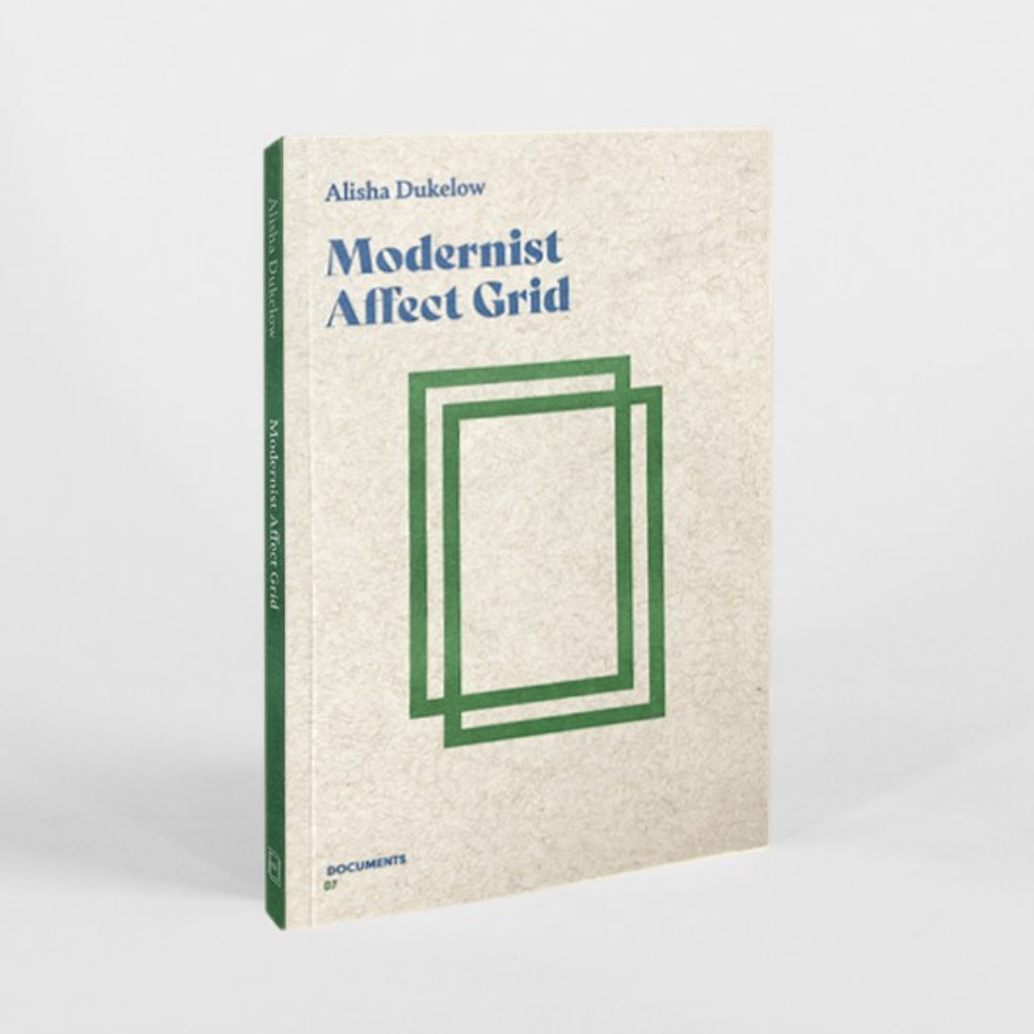DOCUMENTS is the publishing imprint of the Centre for Expanded Poetics. Our aim is to publish work attesting to the multiplicity of practices, techniques, and modes of theoretical intelligence that inform contemporary poetics. If poetics refers to the theory of poetry (its forms, histories, critical categories) it is also the theory of poiesis (of making), and this larger field draws it beyond the boundaries of poetry as a specifically literary activity. As we study this tension between poetry and poiesis, we want to document its contemporary transformations by publishing texts that have shifted and sharpened the focus of our attention to philosophical problems, embodied histories, political contradictions, artistic experiments, and scientific models of structure and form.
Each book in the series is designed by LOKI, printed in an edition of 250 on the Centre’s Risograph MZ1090, bound and distributed by our collaborators at Anteism, and eventually available as a digital flip book on the Centre’s website.
Volumes are available for purchase through Anteism’s catalog. Proceeds go to authors (75%) and to Anteism’s distribution costs.
Edited by Nathan Brown and Michael Nardone
Obsidian Situations — Tricia Middleton
What is the obsidian situation? An act of mourning, committed in a mood of cocky abjection, against indifference and hollow repetition. The element is wet: fountains, sweat, vapours, wine, puddles, tears tears tears, soggy towels and the Seine flowing beneath. The form is layered, carefully folded, then crumpled and held together with an ancient ribbon. The structure is Paris, spiderweb of fixed names and stray histories. The obsidian I deadpans her way through the pathos of small-r-romance in a century that wishes it were dead. She has questions for her coterie of XVIIIe siècle spirits and other bric-à-brac.
Q: Is it art to be day-drunk in the Tuileries?
A: C’est possible.
Q: Can anything be done for the avalanche of petits objets rushing to their fates, the fate of being vitrined in the heart of the Imperium; glass-eyed and soiled in a basement; the fate of a man’s missing teeth, a floating bottle?
A: Tous, adorés et méprisés, suivront la rivière jusqu'à la mere.
— Cynthia Mitchell
Tricia Middleton is an artist living and working in Montréal. Her work has been widely exhibited in monograph and group exhibitions in museums and galleries across Canada and abroad. Obsidian Situations is her first book.
Modernist Affect Grid — Alisha Dukelow
In 1962, Place Ville Marie, Montreal’s cross-shaped office tower and underground shopping mall—named after the French Catholic settlement of unceded Mohawk territory that became the colonial city—opened to the public as the Commonwealth’s tallest “nerve centre” and “breathing machine.” The same year, Silvan Tomkins, the father of affect theory, published Volume I of Affect Imagery Consciousness, which exuberantly draws on the then-sensational cybernetic brain-computer metaphor. 1962 also saw the publication of Story Sequence Analysis by Magda Arnold, a luddistic and devoutly Catholic psychologist who mothered the monumental cognitive appraisal theory of emotion. Modernist Affect Grid’s essay-poems triangulate these events as they emerge amidst the Cold War tech race’s paranoid and projective ambition.
Author Bio:
Alisha Dukelow lives in Los Angeles, where she is a PhD candidate in English Literature at the University of Southern California. She is interested in the relationship between innovative modern and contemporary literature, the mind/body, time, and the environment. She received an MA in Creative Writing from Concordia in Montreal, and her poetry and fiction have been published in places such as The Malahat Review, PRISM international, and Room. Her chapbook of poems, Pareidolia (2020), is available through Anstruther Press.
Poor Fridge - Mark Francis Johnson
Everything put into a poor fridge spoils. A solution to this problem: to only ever attempt to preserve in such a fridge things already spoiled, as well as those things improved by spoilage. Much of the world, happily, falls into one of these two categories. Poor Fridge is Mark Francis Johnson's record of a year spent prepping for a future consumed – except for the most and least spoiled parts – by the past.
Poor Fridge includes an afterword by poet Nora Fulton.
Mark Francis Johnson lives in Philadelphia with his wife, Sarah DeGiorgis, and their two cats, Pickle and Simon. He is one-third of Hiding Press. His latest books are Sham Refugia (Hiding Press: 2020) and 800 JKS (Ma Bibliotheque: 2020)
The Book: 101 Definitions, ed. Amaranth Borsuk
In April 2018, Amaranth Borsuk began to approach artists, bookbinders, publishers, librarians, and scholars to inquire What is the/a book? This volume documents the responses and decenters the author’s voice to draw attention to the many other formulations of what the book is and can be.
Amaranth Borsuk an Associate Professor in the School of Interdisciplinary Arts and Sciences at the University of Washington, Bothell, where she also serves as Associate Director of the MFA in Creative Writing and Poetics. She is the author of The Book (MIT Press, 2018), a brief introduction to the book as object, content, idea, and interface.. Her volumes of poetry include Pomegranate Eater (Kore Press, 2016), Handiwork (Slope Editions, 2012), selected by Paul Hoover for the 2011 Slope Editions Poetry Prize; and Tonal Saw (The Song Cave, 2010), a chapbook-length erasure. Abra (1913 Press, 2016), a book of mutating poems created with Kate Durbin, received an NEA-sponsored Expanded Artists.
Slow Scrape - Tanya Lukin Linklater (purchase here)
Slow Scrape is, in the words of Layli Long Soldier, “an expansive and undulating meditation on time, relations, origin and colonization." Lukin Linklater draws upon documentary poetics, concrete-based installations, event scores, and other texts composed in relation to performances written between 2011 and 2018. The book cites memory, Cree and Alutiiq languages, and embodiment as modes of relational being and knowledge. The book unfolds a poetics of relation and action to counter the settler colonial violences of erasure, extraction, and dispossession. Slow Scrape can be read alongside Lukin Linklater’s practice as a visual artist and choreographer.
Tanya Lukin Linklater's performances, videos, installations, and writings work through orality and embodiment – investigating histories of Indigenous peoples’ lives, lands, and structures of sustenance. She has studied at Stanford University, the University of Alberta, and, presently, at Queen’s University, where she is a doctoral candidate in Cultural Studies. While Lukin Linklater's Alutiiq homelands are in southern Alaska (Native Villages of Afognak and Port Lions), she has lived and worked in Nbisiing Anishnabek territory in northern Ontario, Canada for more than a decade. Slow Scrape is her first collection of poetry.
Thee Display - Nora Collen Fulton (purchase here)
From its situation in Ancient Greece through the various rewritings and commentaries and interventions of the last 2500 years, there is certainly no book being transmitted in the anything-but-unbroken and often comic transmission of The Phaenomena, a long didactic poem enumerating the constellations and their movement through the skies. There is certainly no origin apparent in such a transmission, even as the layers of compaction that this text attempts to unfold are themselves arguments about origin, plaintive debates about the irresolvable contradiction of a “first copier.” But what does it mean to give up the constellation, the relation, the durability that relation promises to guarantee, without being able to retreat into the security of origin or determinate meaning? What do you do then?
Nora Collen Fulton lives in Montreal, where she is currently pursuing a doctorate focused on philosophy, trans theory and poetics. Thee Display is her third book of poetry - she is also the author of Presence Detection System, from Hiding Press (2019), and Life Experience Coolant, from Bookthug (2013). Nora's poems have been published in Social Text, Homintern, Some Magazine and elsewhere. Her critical and theoretical work can be found in Radical Philosophy, The Poetry Project, Music and Literature and more.
NourbeSe Philip, Looking for Livingstone: An Odyssey of Silence (purchase here)
A woman, travelling alone through time, Africa, and unnamed lands, searches for Dr. David Livingstone, celebrated by the West as a “discoverer” of Africa. Throughout her quest, for knowledge and for Livingstone, the traveller visits many peoples, listens to their stories and their silences, and learns about their Silence. Suspense, parables, and dreams play major parts of the story twists and turns toward the traveller’s confrontation with Livingstone-I presume.
Looking for Livingstone explodes Western assumptions about the “silence” of indigenous peoples; this is on elegant and compelling novel which beautifully gives voice to the ancestors to whom it is dedicated.
M. NourbeSe Philip is an unembedded poet, essayist, novelist and playwright who lives in the space-time of the City of Toronto. She practised law in the City of Toronto for seven years before becoming a poet and writer. She has published four books of poetry including the seminal She Tries Her Tongue; Her Silence Softly Breaks, one novel and four collections of essays. Her book-length poem, Zong!, is a conceptually innovative, genre-breaking epic, which explodes the legal archive as it relates to slavery. Her most recent work is BLAnK is a collection of essays on racism and culture.
Devin Wangert, Dead Time: Intolerable Images and the Politics of Banality (purchase here)
Banality is a style of experience often indicated by variations of the statement, “nothing is happening.” When you are “doing nothing,” the life you are living appears as both ordinary and impassive. In the present moment, these qualities also come to describe the endurance of structures of impoverishment, disenfranchisement, criminalization, and environmental destruction that form the background and backbone of the current political-economic system, so that “doing politics” often comes to mean interrupting banality. Offering new ways of conceiving the notions of inactionability and intractability that attend to these structures, Devin Wangert forwards banality as a concept capable of both adequately describing those structures as inactionable or impossible situations and of identifying affinities between forms of livelihood that go on living in and responding to those situations. He suggests that repertoires of thinking and acting which were historically posed in opposition to banality and understood as responsible for creating change come instead to actively produce impossible situations as banal and posit banality as an obstacle to political subjectivity, thought, and action.
Devin Wangert is a PhD candidate in the Department of Visual and Environmental Studies at Harvard University.









